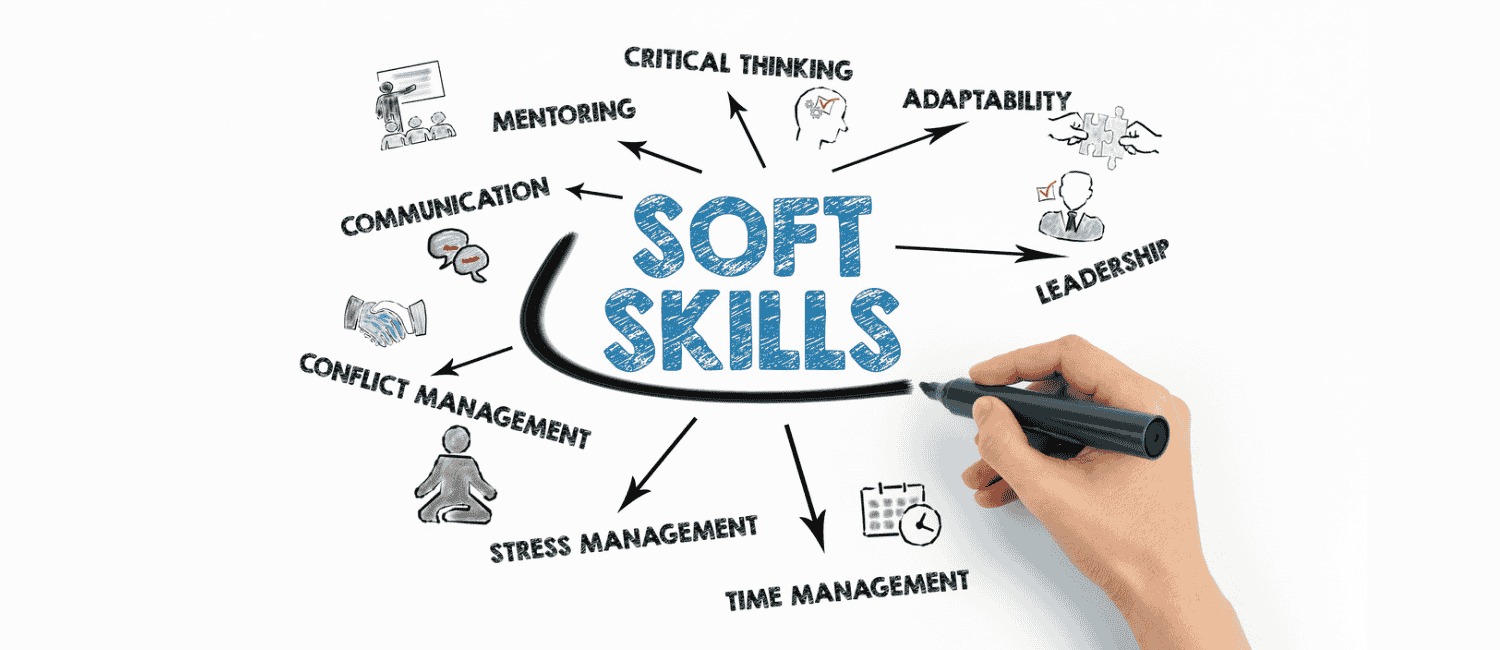Introduction: Addressing a Common Career Challenge
“We did everything right. He topped every subject, completed three coding courses. Yet, no interview calls. What are we missing?” I hear this question almost daily from both parents and students.
Over the years, I’ve sat across hundreds of families, and one thing stands out: the question isn’t really about marks or degrees anymore. It’s about momentum and career breakthroughs. Why aren’t we moving forward even when all the right pieces seem to be in place?
It’s a vital question and needs a proper solution.
Today, we live in a world where degrees are chased, certifications piled up, and technical skills polished until shiny.
But here’s what I’ve noticed time and again, even the most qualified candidates end up sitting at home, struggling to land interviews or advance in their jobs.
So, what’s happening?
Somewhere along the way, soft skills quietly slipped off the checklist.
This is a piece of the puzzle many overlook, yet it often decides who stays stuck and who gets to move ahead.
I’ve seen this pattern play out across cities, streams, and experience levels. Students focus on academics or technical know-how, hoping it will carry them through. But the truth is, no amount of book knowledge or coding chops will help if communication, attitude, or adaptability don’t keep pace.
Let’s take a closer look at why that matters.
Soft Skill vs. Academic Skill vs. Technical Skill: What Goes Wrong
Most students I meet come from families that place academic success at the top of their list. That’s understandable. But the problem is we often treat academics as the only priority.
Then, when students start applying for internships or job interviews, they realise something’s missing.
Take Rohan, for example. He’s a brilliant coder with top grades. But during an interview, when asked to explain his final year project in simple terms, he froze—not because he didn’t know his work, but because he wasn’t prepared to communicate it clearly or connect it to the interviewer’s questions.
Here’s where most students start slipping:
- Strong grades, but zero experience working in groups
- Solid technical skills, but no client-facing communication
- Ready for internships, but nervous and underconfident in interviews
What usually happens is this?
- Academics are strong, but there’s little exposure to real-world communication or teamwork.
- Technical knowledge exists, but students struggle to explain it clearly or apply it practically.
- Soft skills get ignored until it’s almost too late.
So even with good marks and technical training, many students feel unprepared because they’ve never paid attention to improving their soft skills — something that’s vital for career growth and success.

Importance of Soft Skills
Why Soft Skills Matter More Than Ever?
Today’s job market is demanding. Employers look beyond textbook knowledge and academic scores. They’re looking for adaptability, emotional intelligence, and people who can handle pressure and adjust quickly to challenging work environments.
Here’s what most students don’t realise:
Everyone has a degree—whether it’s undergraduate or postgraduate. Most have technical skills, too. But what often sets one candidate apart is this: who communicates clearly, handles stress with maturity, meets deadlines under pressure, and works well in a team.
I say this in every workshop—soft skills aren’t extra. They’re the differentiator.
So if you’re wondering how to stay competitive, don’t just chase certificates. Focus on how you present yourself, how you handle tough conversations, and how you take initiative.
Take Monika, for example. She was a mechanical engineering gold medallist with top grades. But in placement rounds, she aced written tests and then froze during group discussions. She wouldn’t speak up, got flustered when interrupted, and sometimes gave up halfway.
Her parents had done everything by the book. Yet, they watched her lose out—and didn’t understand why.
That’s when they reached out to me. We worked together over several sessions—mock interviews, voice training, and learning to read group dynamics and know when to speak. Her parents stayed involved throughout, helping reinforce her progress.
Slowly, Monika’s confidence grew. By the final round, she was leading discussions rather than fading away. She eventually landed a role she truly deserved at a top electrical company in Bangalore.
Soft skills are part of what we call the Career Clarity Compass™—the link between knowing your stuff and growing your career.
If you’ve ever been part of a team, group project, or professional setting, you’ve seen soft skills in action. These aren’t about what you know, but how you apply yourself.
Top 6 Soft Skills Employers Struggle to Find Today
- Communication & Collaboration
- Time & Self-Management
- Leadership & Conflict Resolution
These skills aren’t taught in textbooks. But they can be coached—and practiced.
According to the LinkedIn Global Talent Trends report, 92% of talent professionals believe soft skills are just as important as technical skills when hiring. In a world where thousands compete for a single role at top companies, soft skills are critical. Without them, landing your dream job is nearly impossible.
Emerging Skills Required in Today’s Market
From what I’ve seen through conversations with recruiters, industry updates, and feedback from students, here are some of the most in-demand soft and hybrid skills right now:
- Emotional Intelligence – Especially valuable in client-facing roles and leadership positions.
- Digital Communication – Knowing how to handle video calls, emails, and LinkedIn messages—each demands a different tone and approach.
- Adaptability – The ability to shift gears quickly, whether it’s taking on a new role or learning unfamiliar tools.
- Time Management – A must-have, particularly in hybrid or remote work setups where self-discipline matters more than ever.
- Critical Thinking – While AI can give you answers, making sense of problems still requires a thinking human behind the screen.
- Self-Learning Mindset – Those who take initiative to learn on their own are often the ones employers notice first.
These aren’t the kind of skills you’ll get a certificate for—but they’re the ones that make your academic knowledge and technical training count in the real world.
That said, soft and hybrid skills don’t replace your academic or technical foundation—they build on it and bring it to life.
Let’s take an example. Siddharth, a final-year design student, excelled in every software test. But during a client call simulation, he struggled—with tone, tact, and timing. The lesson? Knowing the tools isn’t enough. Communication and presence matter, especially when you’re expected to represent a company or work with clients.
So, if you think good grades and technical skills alone will guarantee you a job, think again. Ask yourself—are you genuinely prepared for the workplace, or are you overlooking the kind of skills that recruiters now expect by default?
If you’re unsure or feel stuck at any point in your career journey, we’re here for you. With over 11 years of experience in mentoring and career guidance, we understand how overwhelming today’s job market can be. The endless course options, career paths, and rising competition can leave even the most focused students feeling confused and unsure about what to do next.
Don’t hesitate to reach out. Whether it’s figuring out your next step, choosing the right course, or strengthening your soft skills—we’re here to guide you.

Why Academic Skills Still Matter?
Academic skills, as I often explain to students, are like the roots of your professional tree. They provide knowledge, theory, and structure. Whether it’s mastering physics as an engineer or grasping business law as an MBA student, these form the foundation.
These are usually the most visible skills on your resume—the ones that help you get your foot in the door. But here’s something I remind students often: these skills alone rarely earn you the long-term trust of a team or client unless they’re supported by soft skills.
Take Ritika, for example. She knew Python, Excel, and Tableau inside out. But in her first project meeting, she couldn’t explain how her dashboard helped the team. The tools were there, but the communication was missing.
Technical skills open doors—but what keeps you inside the room is how you behave, adapt, and collaborate.
So don’t just chase certifications or new software—ask yourself: which technical skills truly align with the career path you want? How will you back them up with the soft skills that make a difference?
Technical Skills – The Skillset You Market
Now let’s talk about technical skills. These are what many students become fixated on—especially when job hunting.
Technical skills can include:
- Programming languages
- Excel and data analysis
- Operating machinery
- Design tools like Photoshop or Figma
- Digital marketing platforms
Make no mistake—these skills are important. They often determine whether you get shortlisted or not. They’re the most visible part of your resume and the first thing recruiters notice.
But here’s the catch: these skills often win you the interview, but they rarely earn the long-term trust of your team or clients without soft skills backing them up.
Technical skills open doors. What keeps you inside the room is how you behave, adapt, and collaborate.
So, don’t just chase certifications or the latest software. Ask yourself: which technical skills truly fit the career path you want? And how will you develop the soft skills that make those tools meaningful in real work?
Balancing the Three: What Should You Focus On?
- One of the most common questions I hear is: “How do I manage academics, technical skills, and soft skills all at once? Isn’t that too much?”
- Here’s the truth—there’s no need to master everything simultaneously. The key lies in knowing what to focus on, and when.
1. In School
What to Prioritize: Academics and early exposure
Why it Matters: Building a strong knowledge base sets your foundation. Soft skills start forming naturally when you join group projects or speak in class.
One Simple Action: Participate in at least one team activity or presentation every term.
Parent Cue: Encourage your child to join school clubs or events—even if they’re shy. This is soft skill practice in disguise.
2. Final Year / Recently Graduated
What to Prioritize: Sharpen technical skills and practice soft skills
Why it Matters: This phase is your launchpad. Technical expertise gets you noticed, but communication and teamwork prepare you for real work challenges.
One Simple Action: Attend mock interviews and group discussions; take internships seriously.
Parent Cue: Support your child by helping them rehearse interview questions or discuss teamwork experiences.
3. Early Career Professionals
What to Prioritize: Grow soft skills alongside on-the-job learning
Why it Matters: Jobs will teach technical skills in real-time. But career growth depends on how well you communicate, manage deadlines, and handle conflicts.
One Simple Action: Volunteer for projects that require coordination or leadership.
Parent Cue: Offer encouragement when they share work challenges, and prompt reflection on handling them.
Remember: There’s no pressure to master all three at once. Progress happens step-by-step. So, once you’ve begun developing all three skill areas, what’s next?
Let’s decode how recruiters assess these in the real world.
What Recruiters Are Really Looking For
Once you’ve built your mix of academic, technical, and soft skills, here’s how recruiters size you up at each stage of the hiring process:
- Step 1: Resume Scan
They check for strong academic records and technical abilities—these get your foot in the door. - Step 2: Interviews & Group Tasks
This is where soft skills come under the microscope. Can you communicate clearly? Collaborate with others? Stay calm under pressure? - Step 3: Final Selection
Attitude, adaptability, and trustworthiness become the dealmakers. It’s about how you handle setbacks and feedback.
Let me share a story from last year:
Ananya and Sameer were both marketing aspirants with solid academics and similar internships. But Ananya regularly volunteered, organized events, and debated passionately. Sameer focused mostly on online courses and test prep.
Ananya doubted she was “qualified enough” for a major MNC role—but her confident communication and leadership experience made the difference. She got the offer in just one round.
When I followed up, the recruiter said, “She spoke with clarity, handled pressure in the group discussion, and showed real initiative. We can teach tools—but we can’t teach mindset.”
What this teaches us:
Soft skills don’t replace your qualifications. They bring them to life and set you apart.
Actionable Steps for Parents & Students
For Students
- Join clubs, fests, or volunteer groups. Real learning happens when you interact with people and solve problems.
- Practice interview-style answers out loud. Confidence grows through repetition—it’s not born overnight.
- Learn to listen actively. This soft skill instantly improves how you work in groups.
- Take feedback seriously—but not personally. Developing this habit builds maturity and resilience.
This builds your Career Voice™—the ability to express your skills with confidence.
For Parents
- Encourage your child to participate beyond textbooks. Balance matters more than perfect marks.
- Reflect: Are you praising only high scores, or also curiosity, teamwork, and initiative?
- Talk to your child as if they are professionals in training—build real-world conversations at home.
- Appreciate effort and communication skills, not just grades. A well-spoken student with average marks often advances further than a topper lacking people skills.
Weekly Habit Prompt:
Every Sunday, ask your child:
“Which skill—academic, technical, or soft—did you use the most this week?”
This simple habit helps normalize skill awareness and growth.
Why Soft Skills Matter More in 2025?
Earlier, a technical analyst only needed to crunch numbers. Today, they’re expected to present insights to clients, collaborate with marketing teams, and even handle crisis communication.
Take Aarav, for example. He started as a data analyst but quickly realised that presenting findings clearly—and managing cross-team tensions—was what set him apart. That’s why technical skills open doors, but soft skills keep you relevant and growing.
If you’re ignoring soft skills, you’re preparing for a world that no longer exists.
How to Build Them: An Action Plan?
- Start with self-awareness — Ask trusted friends, teachers, or mentors where you struggle most: communication? Time management?
- Take on roles that push you — Organise an event, lead a study group, or volunteer for leadership in college.
- Practice active listening — Most people listen to respond; try listening to understand.
- Observe and learn — Notice how confident communicators handle stress and conversations differently.
- Seek honest feedback — It’s the fastest way to improve and grow.
Building soft skills isn’t about classes or coaching—it’s about consistent attention, intention, and repetition.
The Return on Time (ROT) You Can’t Ignore
Every hour you invest in self-awareness and emotional growth multiplies your ROT—because it makes everything you learn actually stick and work in the real world.
Not Sure Where to Start?
That’s exactly what we’re here for. Book a session through our portal, and let’s design a plan that fits your child’s strengths—not just the system’s expectations.
In Conclusion
So, what really matters more—soft skills, academics, or technical ability?
If you’ve been wondering which one to focus on, here’s the truth: it’s not about choosing just one. The momentum comes from balancing all three.
Your degree might open the door. Your skills might land the job. But your soft skills decide how far you go.
In a world where roles keep evolving, your ability to adapt, learn, and connect with others is what keeps you relevant.
If you’re just starting out, build strong habits and technical know-how. If you’re ready to grow, soft skills will set you apart.
Feeling unsure where your child stands—or what’s missing in their preparation? We can help you figure it out, together.
At NextMovez, we don’t just plan careers—we build clarity that lasts.






















